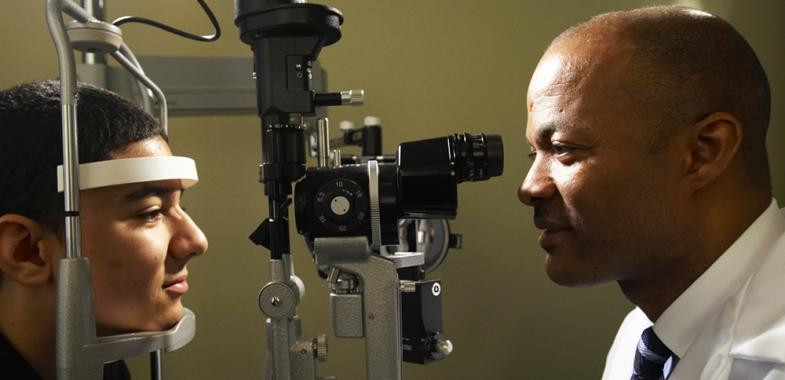Retina Services


L.O. Eye Care is proud to offer state-of-the-art retina services. We provide cutting edge care for diabetic retinopathy, macular degeneration, retinal vascular disease, retinal detachment, and all other retinal problems. We have a first-rate staff of physicians who provide treatment in a caring and compassionate atmosphere.
The retina is a layer at the back of the eyeball containing cells that are sensitive to light and that trigger nerve impulses that pass via the optic nerve to the brain, where a visual image is formed. A Retina Specialist is a highly trained medical professional who specializes in the treatment of conditions and diseases affecting the retina. With the care of a Retina Specialist it is possible to save vision and restore sight to those suffering from retinal conditions.
L.O. Eye Care's Retina Experts treat patients at the following locations in Michigan: Okemos, East Lansing, Mt. Pleasant, Howell, Grand Ledge, and Battle Creek.
Diabetic Retinopathy
Diabetic Retinopathy is the most common diabetic eye disease. It occurs when blood vessels in the retina change and become damaged or new abnormal blood vessels grow on the surface of the retina. People with diabetic retinopathy usually do not notice changes in their vision until the disease progresses. It is very important for people with diabetic retinopathy to see a ophthalmologist every year. If left untreated, the disease can cause irreparable vision loss.
Macular Degeneration
Age-related macular degeneration or AMD as it is often known, is the leading cause of blindness in adults age 60 and older. AMD is a chronic condition that causes the macula, the portion of the retina responsible for seeing fine detail, to become damaged. Symptoms of AMD include blurriness, wavy lines or a blind spot. There are two forms of AMD: dry and wet. Dry AMD usually develops slowly over time, where as Wet AMD is more serious. More than 200,000 people in the United States are diagnosed every year with Wet AMD and symptoms can occur suddenly. Early detection and treatment for either form is very important and is the only way to avoid vision loss.
Those tiny specks or clouds we see moving in our field of vision are called floaters. Floaters are actually small clumps of material and/or cells inside the gel-like fluid, called the vitreous, in your eye. Floaters can appear in many forms and sizes. Flashers are the sensation of flashing lights or lightning streaks caused by the pulling of the vitreous gel on your retina. Both of these occurrences become more common as we age due to the vitreous gel pulling away from the back wall of the eye. In some cases, these occurrences are due to a retinal tear or detachment and need to be treated quickly to avoid vision loss. Delayed treatment can result in the retina detaching from the back of the eye.
If you experience the following, please contact an ophthalmologist right away:
- A sudden increase in floaters
- A sudden appearance of flashes
- An appearance of a shadow or curtain in the side of your field of vision
- A gray curtain moving across your field of vision
- A sudden decrease in your vision
Retinal Tears and Detachment
Retina detachment is a very serious condition that occurs when the retina separates from the tissue surrounding it. Without immediate treatment, a retinal detachment can cause permanent vision loss. People who are severely nearsighted, have had an eye injury or have a family history of retinal detachments are more likely to get a detached retina. There are several ways to treat a detached retina, including with lasers and surgery. Retinal tears often occur before a retinal detachment and is usually caused by the tugging of the vitreous. When the vitreous shrinks over time, a piece of the retina may stay adhered to the vitreous causing a tear. When a retina tear occurs and is not treated quickly, fluid can enter the tear and lift the retina off the surrounding tissue, creating a retinal detachment.
If you experience the following, please contact an ophthalmologist right away:
- A sudden increase in floaters
- A sudden appearance of flashes
- An appearance of a shadow or curtain in the side of your field of vision
- A gray curtain moving across your field of vision
- A sudden decrease in your vision

